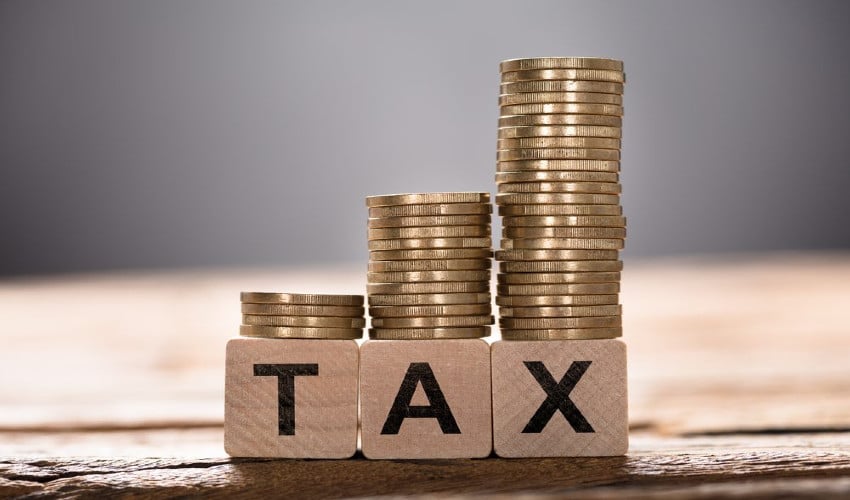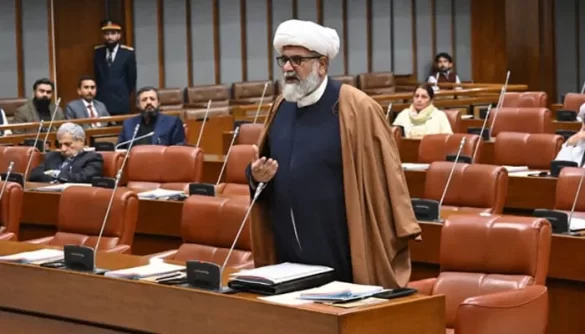Higher Bank Withdrawal Tax for Non-Filers
Pakistan’s Federal Board of Revenue (FBR) has announced a significant revision in its tax policy for individuals who are not listed on the Active Taxpayers List (ATL).
Under the updated regulations, any non-filer withdrawing more than 50,000 Pakistani rupees in a single day will now face a higher withholding tax rate. The tax, previously set at 0.6%, has been increased to 0.8%.
Banks across the country have been authorized to deduct this advance adjustable tax at the time of withdrawal. The change aims to pressure non-filers to register with the tax system and declare their income.
FBR officials argue that large-scale cash withdrawals by unregistered individuals not only reduce tax collection but also fuel the undocumented economy, making it harder to trace financial transactions.
Major Changes to Property Transaction Taxes
The revised policy also introduces substantial adjustments to taxes on real estate transactions — an area long considered a safe haven for undeclared wealth in Pakistan.
According to the FBR, the withholding tax for buyers has been reduced by 1.5 percentage points across all price brackets. Meanwhile, the tax for sellers has been increased by the same margin in each slab. This change is designed to better capture capital gains tax on property sales.
These amendments have been incorporated into Sections 236C and 236K of the Income Tax Ordinance.
New Tax Rates for Buyers
-
Up to PKR 50 million (USD 180,000): Reduced from 3% to 1.5%
-
Up to PKR 100 million (USD 360,000): Reduced from 3.5% to 2%
-
Above PKR 100 million: Reduced from 4% to 2.5%
For sellers, the revised rates vary according to the holding period and property value, but each slab has seen an increase of 1.5 percentage points.
FBR’s Rationale: Boosting Compliance and Transparency
An FBR spokesperson stated that the measures are part of an ongoing strategy to broaden the tax base and reduce reliance on indirect taxes. Pakistan’s tax-to-GDP ratio — hovering around 9.5% in recent years — remains among the lowest in the region.
The real estate sector has historically been a major source of investment for Pakistanis, but it has also been criticized for enabling tax evasion through under-declared property values and undocumented cash transactions.
By reducing purchase taxes while raising sale-side rates, authorities hope to discourage speculative buying and encourage sellers to accurately declare capital gains.
Economic Context
Pakistan is currently under significant fiscal pressure, with the government seeking to meet revenue targets agreed with the International Monetary Fund (IMF) under a loan programme. Recent fiscal decisions, including income tax relief measures for the salaried class, show the government’s attempt to balance revenue collection with public relief. Strengthening tax compliance, particularly among high-income individuals and sectors with low documentation, is a key demand of the IMF.
According to official data, only around 4.5 million Pakistanis file income tax returns each year — less than 2% of the population. The FBR estimates that millions more are eligible but remain outside the system.
Cash transactions also remain a dominant part of Pakistan’s economy. The State Bank of Pakistan’s figures show that currency in circulation accounts for nearly 30% of the broad money supply, far higher than the global average.
Potential Impact on Citizens and Businesses
For non-filers, the increased bank withdrawal tax will raise the cost of operating in cash. Businesses and individuals who rely heavily on cash dealings may now face higher expenses unless they join the tax network.
For the property market, the shift in tax rates could slightly lower upfront costs for buyers but increase the selling cost for owners, particularly those seeking quick gains. Market analysts believe the move could lead to a temporary slowdown in speculative transactions but may improve transparency in the long run.
The FBR insists that the policy is not aimed at discouraging legitimate business activity but at ensuring fair contribution to national revenues.
Looking Ahead
These tax changes are part of a broader digitalization and enforcement drive, including the use of banking and property records to identify potential taxpayers. Authorities are also considering stricter penalties for persistent non-filers.
Whether these measures will significantly improve Pakistan’s revenue collection and curb the informal economy remains to be seen. However, officials maintain that without such steps, the country will continue to struggle with chronic budget deficits and underfunded public services.















